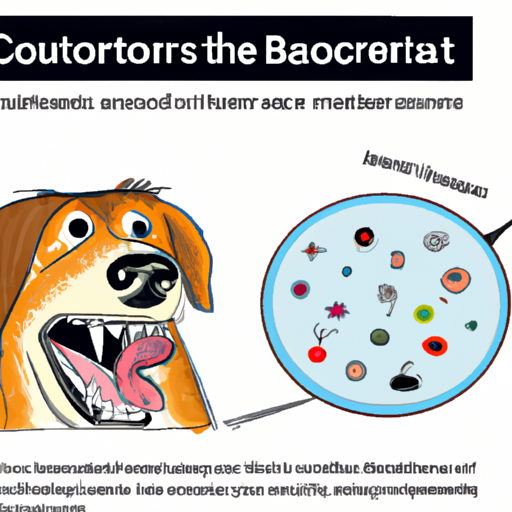Introduction
You love your dog, don’t you? They’re more than just a pet; they’re part of the family. You share your home, your life, and sometimes even your food with them. But have you ever stopped to think about how dirty your dog’s mouth might be?
The Myth vs The Reality
There’s a common saying that a dog’s mouth is cleaner than a human’s. But is it true?
The answer in short is, no. The idea of a dog’s mouth being pristine is a misconception. In reality, a dog’s mouth houses a host of bacteria, just like a human’s mouth. While it’s true that not all these bacteria are harmful, some can certainly pose a risk to both your dog’s health and your own.
Let’s break down the types of bacteria commonly found in a dog’s mouth:
- Pasteurella: This is a normal inhabitant of a dog’s mouth but can cause skin and lymph node infections in humans.
- Salmonella and E. coli: Yes, the same bacteria that can cause food poisoning in humans can also be found in your dog’s mouth.
- Capnocytophaga Canimorsus: This bacteria is rare, but can cause serious illness in humans with weakened immune systems.
How a Dog’s Mouth Gets Dirty
You might be wondering, “how does my dog’s mouth get so dirty?” The answer lies in their behavior. Dogs explore the world with their mouths. They sniff, lick, and chew anything and everything they come across, from their food and toys to dirt and feces.
Here’s a list of common activities that can make a dog’s mouth dirty:
- Eating and drinking: Dogs are not very particular about what they put in their mouths. This includes their food, which can be a source of bacteria.
- Chewing on toys and other objects: From their favorite squeaky toy to the shoe you can’t find a match for, if your dog can get its mouth on it, it’s probably teeming with bacteria.
- Licking themselves and other dogs: Dogs use their mouths for grooming. Any bacteria on their fur or on another dog’s fur can end up in their mouths.
How to Keep Your Dog’s Mouth Clean
Now that we know a dog’s mouth isn’t as clean as we’d like to believe, let’s discuss what you can do to keep it clean.
- Regular vet check-ups: Your vet can check for signs of oral diseases and suggest appropriate treatments.
- Brushing your dog’s teeth: Just like us, dogs need their teeth brushed regularly. There are toothbrushes and toothpaste specially designed for dogs.
- Dental treats and toys: These can help keep your dog’s teeth clean and their gums healthy.
| Method | Frequency | Benefits |
|---|---|---|
| Vet Check-ups | Every 6-12 months | Professional assessment, early disease detection |
| Teeth Brushing | Daily | Removes plaque, freshens breath |
| Dental Treats & Toys | Regularly | Promotes chewing, improves gum health |
FAQ
Q: Can I get sick from my dog’s mouth?
A: While it’s rare, it is possible to get sick from bacteria in your dog’s mouth.
Q: Is it okay for my dog to lick me?
A: Generally, it’s okay unless you have open wounds or a weakened immune system.
Q: How often should I clean my dog’s toys?
A: It’s recommended to clean your dog’s toys at least once a week.
Q: Can I use human toothpaste to brush my dog’s teeth?
A: No, human toothpaste can be harmful to dogs. Always use a toothpaste designed for dogs.
By understanding and acknowledging the reality about our dog’s mouth, we can take better care of their oral health, and in turn, ensure a healthier, happier life for our furry companions.



